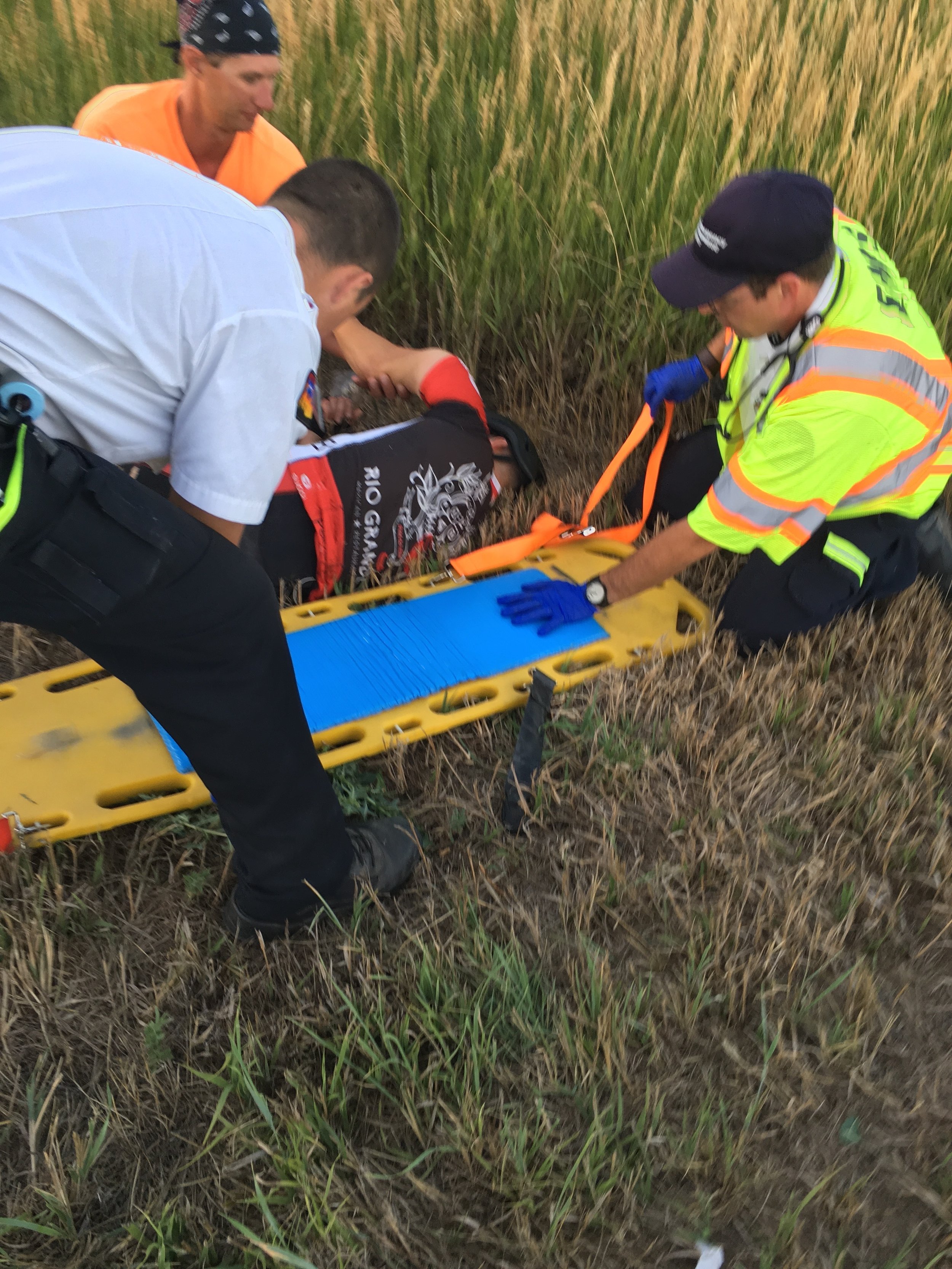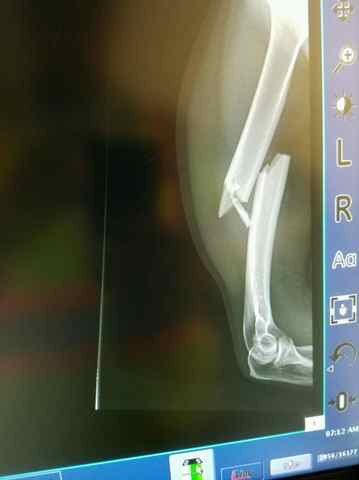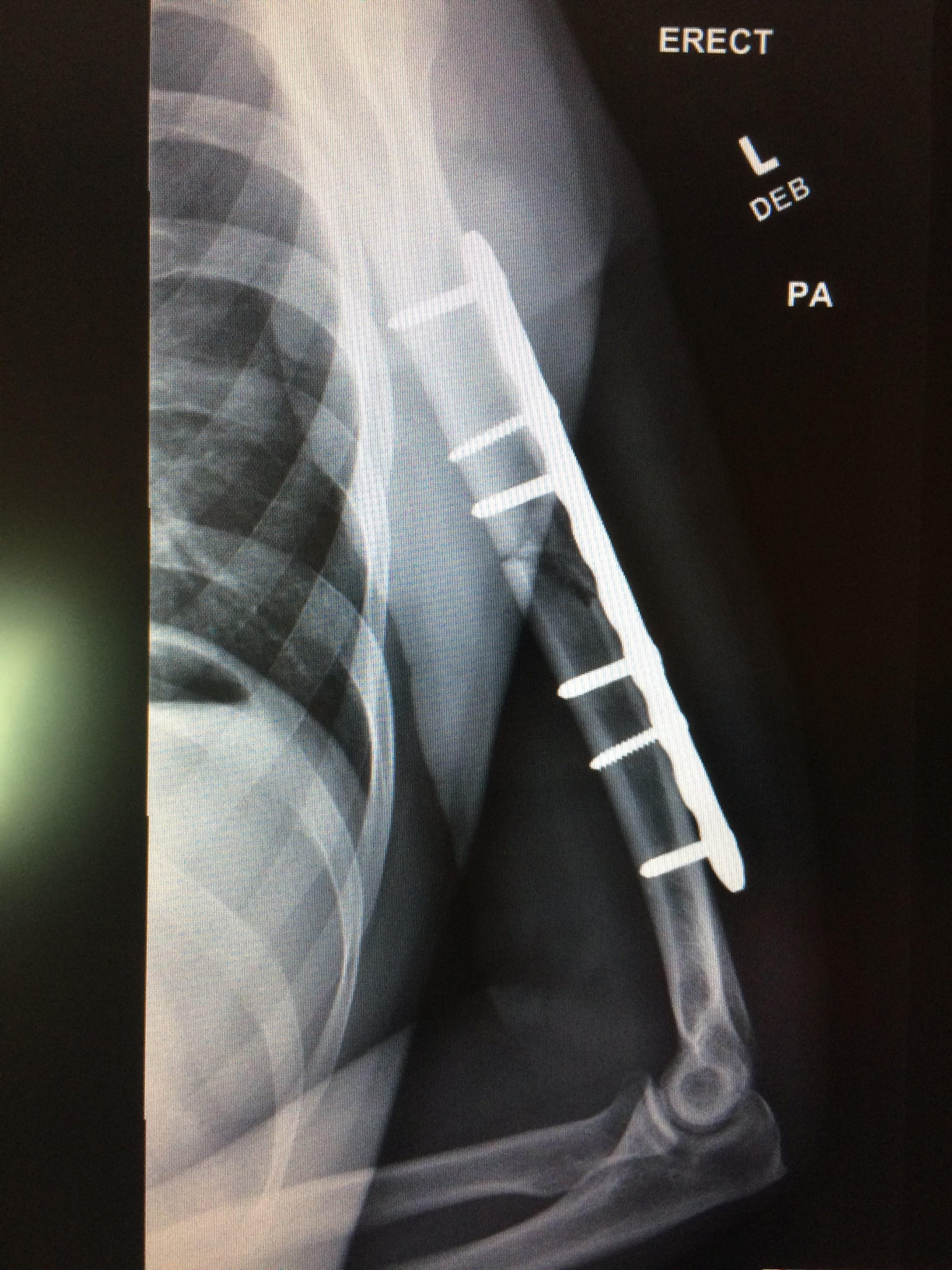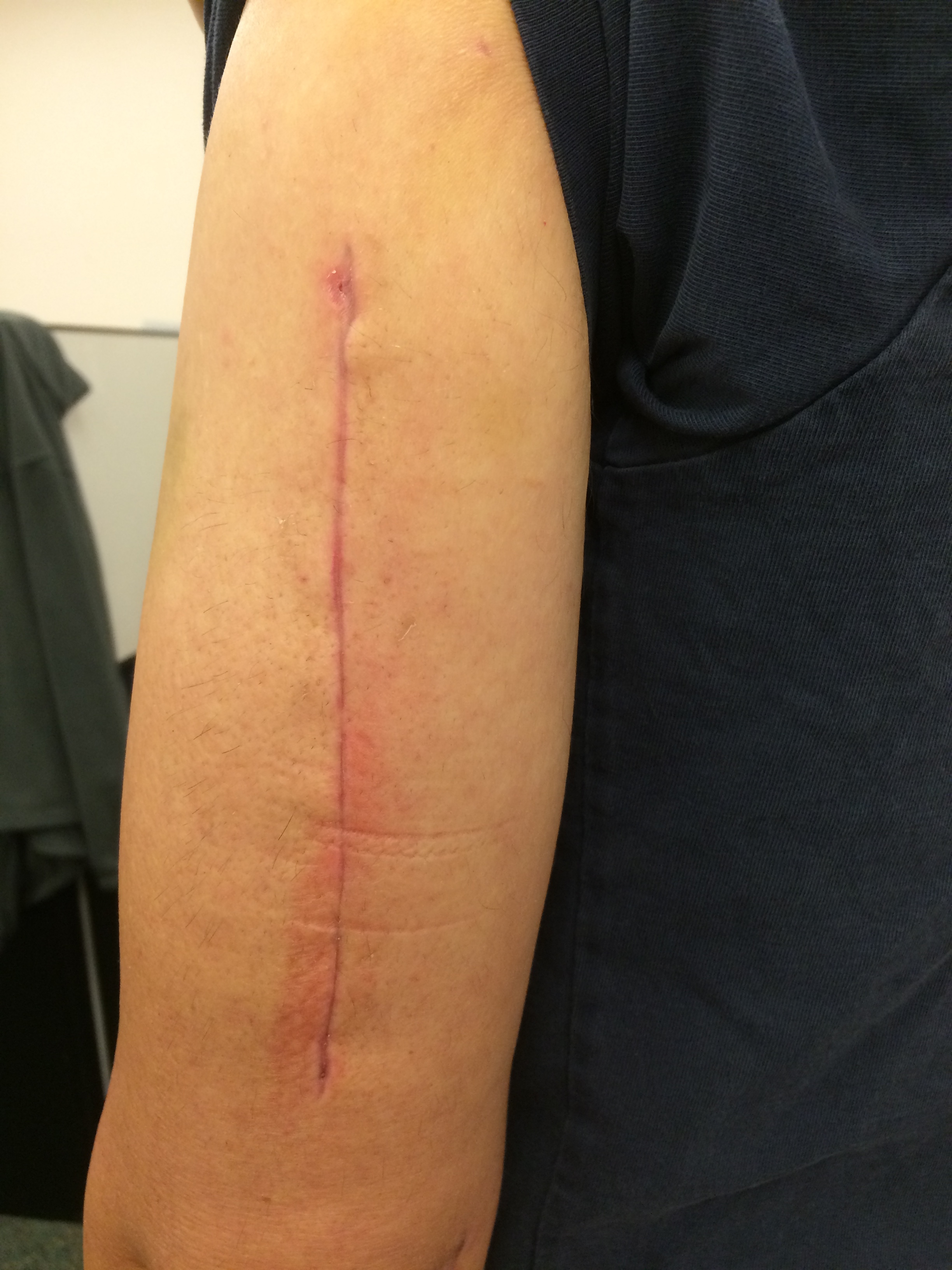$100 Fine for Careless Driving Lets Drivers Off Easy
A driver’s poor decisions and careless driving could have cost Gary Little his life. It could have left a wife without her husband and children without their father. Gary came within inches of dying because a 17-year old driver “decided to get high and drive a 4,000-pound instrument of death,” he says.
It was the night of August 18, 2018, in Lincoln, Nebraska, when the driver of an SUV crashed into him. He was riding south on a bike path around 10:00 pm when the driver going northbound turned into him as he was crossing the intersection. Gary was wearing a helmet and using properly working lights. It was dark, but street lights lit up the area.
A witness, who was also driving north, stated that the driver of the SUV pulled out in front of her from a parking lot with no turn signals and was inches away from hitting the witness’ car. The driver sped out of the parking lot and turned right onto the next road at about 40 mph with no turn signals. The witness also explained that the SUV traveled so fast that it drifted around the corner.
Gary was not able to stop quickly enough. He was thrown to the side of the road and landed in the grass after colliding with the SUV. He was unconscious and not moving.
According to the witness, the SUV stopped, and the driver got out and started screaming. She then got back into her car and tried to leave. By this time, the witness and others, who had gathered at the scene, stood in front of the SUV to block the driver from taking off.
The driver called someone, and another female arrived a few minutes later. She started going through the SUV and grabbing things. She then attempted to run away from the scene. By this time, the police had arrived. The witness yelled at police officers to chase the other female down. When police caught up to her, they found marijuana in her possession. The witness stated that the SUV driver moved very slowly, appeared intoxicated, and seemed not to know what was going on.
The witness checked Gary’s pulse. He woke up about four minutes later and was not aware of what had happened. He was taken to the hospital by ambulance.
Gary’s injuries required surgery for a torn rotator cuff in his right shoulder. Both knees had deep bruising, and he had abrasions to his forehead.
He went through three months of physical therapy and could not ride his bike for six months. Now for someone who has been riding bikes for over 45 years, commutes by bike every day, and is a competitive gravel racer, not being able to ride his bike was tough for Gary. His recovery is ongoing, but he says it feels great to be back on his bike!
Citation: Negligent Driving, amended to Careless Driving and Possession of Drug Paraphernalia and Marijuana.
Fines/Penalties: Total - $149.00. $100 fine plus $49 in court costs for the traffic violation. The driver was assessed four points against her license.
We reached out to a local DA in Nebraska to help us understand why the driver was not punished more severely.
First, Nebraska currently does not have any vulnerable road user (VRU) laws on the books.
Second, in this case, the police officer cited the driver for negligent driving. “If a ticket is issued, the cop decides what offense they believe has been committed. Whatever they put on a ticket is just a recommendation to us. We might disagree and not charge anything, we might add charges, we might charge a less serious offense, or we might charge a more serious offense,” explains the local DA.
Rather than going to the City Attorney’s Office, the ticket went to the County Attorney’s Office. According to the DA, there is no negligent driving charge under state laws. Instead, there is a careless driving charge (Nebraska Revised Statute 60-6, 212), which is the exact same thing except that a careless driving offense adds four points to the driver’s record compared to three points for negligent driving. This is the reason the ticket was amended from negligent driving to careless driving.
Careless driving under Nebraska law is a traffic infraction rather than a misdemeanor. The maximum fine for a first offense is $100. A second offense within a year can cost up to $200, while a third offense would be $300. The Nebraska Supreme Court has set the waiver fine schedule for any fines that are not set by statute.
The DA explained that after the charging decision is made, it gets filed with the court. He goes on to say that not everyone who gets a ticket must go to court. Most low-level traffic offenses, such as speeding, failure to yield, and expired registration, are given the option of paying by waiver and skipping court. A defendant can still have a trial by telling the clerk that they wish to have their case set for trial.
However, most people who get a traffic ticket never appear in court. Once the ticket is signed, no one in the County Attorney’s Office will look at it again unless it is being contested.
“In this case, careless driving is a waiver eligible offense. The fine was preset at $100, and the defendant opted to pay the fine rather than have a trial,” says the DA. The driver was assessed four points against her license. The points are all set out by a schedule in the statutes, so neither the judge nor the prosecutor really have any control over how many points a person gets on their license. The judge can’t revoke a license for a careless driving charge, and the maximum penalty is already being imposed.
The next step up from careless driving would be reckless driving which requires an element of intent behind operating a vehicle poorly. “In this case, there was no intentional bad driving, she should have seen Gary but just didn’t,” says the DA. For reckless driving, you usually are looking for speed, location (highway v. residential), weaving, unsafe passing, violating traffic control devices, etc. Failing to see someone would not rise to the level of reckless driving.
“The example I often give is if you have someone cleaning a loaded gun and it goes off and hits someone, that would be negligent. Yes, they shouldn’t have been cleaning a loaded gun, but there was never any intention of putting someone at risk. Compared to a situation where someone is trying to scare a group of people and intends to fire a shot over their heads but accidentally hits someone instead. There they had the intent to discharge the gun, might not have intended the result, but intended the action. That would be reckless,” says the DA.
People often want to draw a distinction between someone who fails to yield and causes serious bodily injury, and a crash that involves property damage. “As the law sits now, there are no distinctions in the law, all cases where someone fails to yield are treated the same regardless of the outcome (excluding death),” he says.
This begs the question if the law should treat the situations as different? Do you punish someone more severely for negligent driving if someone is hurt? Are they any more negligent than someone who wrecks a car? Gary would most likely argue for more severe punishment after what he has been through!
If you are a VRU in Nebraska, whether a cyclist, pedestrian, scooter rider, road construction worker, etc. and would like to see drivers face harsher penalties for negligent or careless driving, consider one of the following:
Become a member of or donate to a bicycle advocacy group such as Bike Walk Nebraska.
Contact your elected officials. Click here to find out who your legislative representative or congressional member is. Advocate for a VRU law in Nebraska.
Know the steps to take if you are involved in a crash.
Contact connect@hottmanlawoffice.com to get a free 3 Feet It's the Law sticker
Read the laws pertaining to cyclists in Nebraska.
Check out the Nebraska Bicycle Guide.







